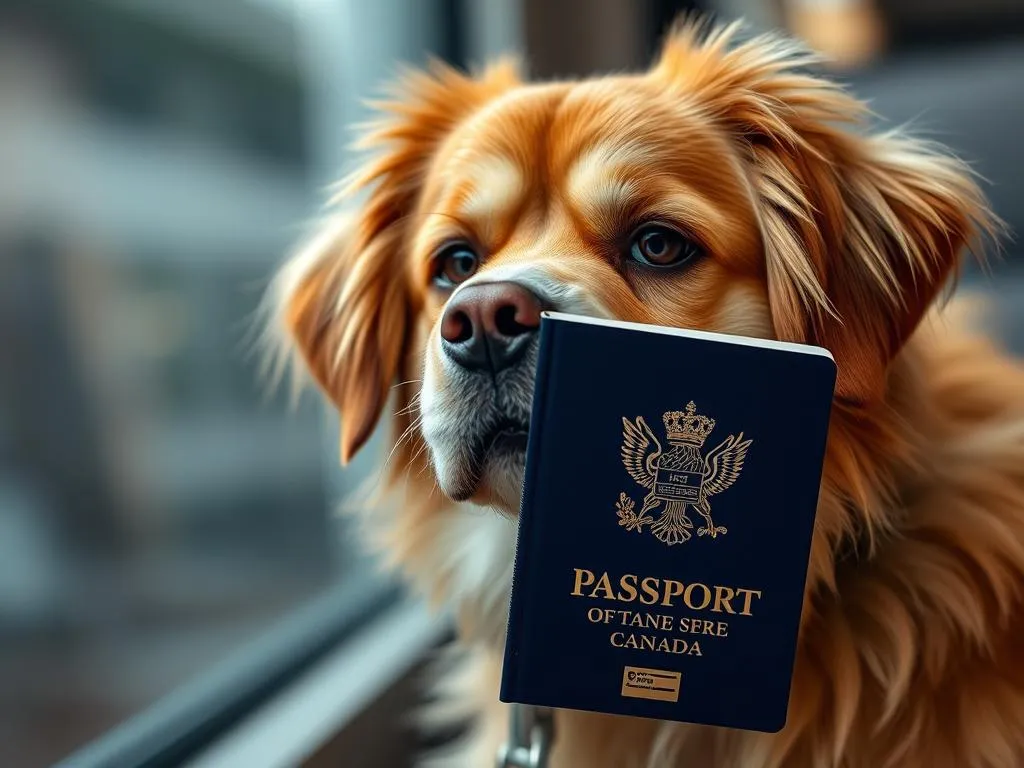
Traveling with pets has become increasingly popular among Canadians, reflecting our deepening bond with our furry companions. For those planning to travel internationally with their pets, understanding the cost of obtaining a Canadian pet passport is essential. This article delves into what a pet passport entails, the associated costs, the process of obtaining one, and tips for managing expenses effectively.
Understanding Pet Passports
Definition of a Pet Passport
A pet passport is an official document that facilitates the travel of pets across international borders. It serves as proof of a pet’s identity and health status, ensuring compliance with the regulations of the destination country. The components of a pet passport typically include:
- Vaccination records: Proof that the pet is up-to-date on vaccinations, especially rabies.
- Microchip information: Verification that the pet is microchipped, which is often required by various countries.
- Veterinary health certificate: A statement from a licensed veterinarian confirming the pet is healthy and fit for travel.
Benefits of Having a Pet Passport
Having a pet passport simplifies the travel process for pet owners. It eases entry into foreign countries, as many nations require proof of vaccinations and an official health certificate. Additionally, possessing a pet passport helps ensure compliance with international pet travel regulations, reducing the chances of unexpected quarantine or denial of entry.
Costs Involved in Obtaining a Canadian Pet Passport
Breakdown of Costs
Understanding the cost of obtaining a Canadian pet passport involves several components:
-
Vaccination Fees: Vaccinations, particularly for rabies, are essential. The average cost for rabies vaccination in Canada ranges from $15 to $50.
-
Microchipping Costs: Microchipping is a crucial part of the passport process, costing about $50 to $75 at most veterinary clinics.
-
Veterinary Examination Fees: A thorough veterinary check-up is often required before travel. Expect to pay between $50 and $100 for this service.
-
Pet Passport Application Fees: Some veterinarians charge an additional fee to prepare and issue the pet passport, which can typically range from $25 to $100.
Additional Costs
Beyond the direct costs of obtaining a pet passport, several additional expenses may arise:
-
Travel-related Expenses: These can include airfare, pet-friendly accommodations, and additional fees charged by airlines for transporting pets. Depending on the distance and airline, flight costs can vary widely.
-
Potential Quarantine Fees: If your pet does not meet the destination country’s entry requirements, they may be subject to quarantine, which can be costly.
-
Insurance Costs: It’s advisable to consider pet travel insurance, which can range from $30 to $100 depending on coverage levels and the duration of travel.
Process of Obtaining a Pet Passport in Canada
Step-by-Step Guide
Obtaining a Canadian pet passport involves several steps:
-
Contacting a Licensed Veterinarian: Your first step should be to find a veterinarian experienced in pet travel. They can guide you through the requirements specific to your destination.
-
Getting Your Pet Vaccinated and Microchipped: Schedule an appointment to ensure your pet is up-to-date on all necessary vaccinations and is microchipped if they aren’t already.
-
Completing the Pet Passport Application: After vaccinations and microchipping, the veterinarian will assist you in completing the pet passport application, ensuring all necessary documentation is in order.
-
Submitting the Application and Paying the Fees: Finally, submit the application along with any required fees. Keep copies of all documents for your records.
Timeframe for Obtaining a Pet Passport
The timeframe for obtaining a Canadian pet passport can vary. Vaccinations are typically immediate, but some require a waiting period before travel, especially rabies. Microchipping is also a quick process.
For the application, processing time can vary by veterinarian, but it usually takes 1 to 2 weeks to prepare the passport once all vaccinations and microchipping are complete. Planning ahead is crucial, particularly if your travel date is approaching.
Factors Affecting the Cost of a Pet Passport
Regional Differences
The cost of veterinary services can vary significantly across Canada. Urban areas often have higher veterinary fees due to increased demand and overhead costs compared to rural regions. For instance, a vaccination in Toronto may cost more than in a small town in Saskatchewan.
Pet Size and Breed
The size and breed of your pet can influence the overall cost of obtaining a pet passport. Larger pets may require more vaccinations and a more extensive veterinary examination, leading to higher fees. Additionally, certain breeds may have specific health issues that warrant further examination, increasing costs further.
Additional Requirements by Destination
Different countries have varying requirements for pet entry. For instance, some countries may require additional vaccinations or health checks, significantly impacting the overall costs involved in obtaining a pet passport.
Tips for Reducing the Cost of a Pet Passport
Finding Affordable Veterinary Services
Researching local veterinarians can help you find affordable options. Consider visiting veterinary schools or clinics that offer discounted services. They often provide quality care at lower prices.
Timing Your Application
Planning your travel during off-peak seasons can lead to cost savings not only on flights but also on veterinary services, as demand may be lower.
Understanding Package Deals
Some veterinary clinics offer package deals that bundle vaccinations, microchipping, and health certifications at a reduced rate. Inquire about these options when you contact your veterinarian.
Frequently Asked Questions (FAQs)
What is the validity period of a Canadian pet passport?
A Canadian pet passport typically remains valid as long as the pet’s vaccinations are current. However, some countries may have specific validity periods for the health certificate, so it’s essential to verify requirements based on your destination.
Can I use a pet passport for multiple trips?
Yes, a pet passport can be used for multiple trips as long as it remains valid and all vaccinations are up-to-date. Always check the entry requirements for each destination.
What to do if my pet’s passport is lost or damaged?
If your pet’s passport is lost or damaged, contact your veterinarian immediately to obtain a replacement. Keep copies of important documents in a safe place for emergencies.
Are there specific requirements for certain breeds?
Certain breeds may have additional requirements, especially if they are categorized as “high-risk” breeds in some countries. Always check with your veterinarian or the destination country’s regulations before traveling.
Conclusion
Understanding the cost of obtaining a Canadian pet passport is essential for any pet owner planning to travel internationally. By knowing the necessary steps, associated costs, and potential savings, pet owners can better prepare for a smooth travel experience with their furry friends. Planning ahead and being informed about the pet travel process can make all the difference, ensuring that both you and your pet enjoy a stress-free adventure together.









